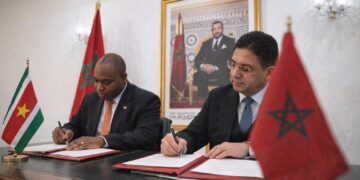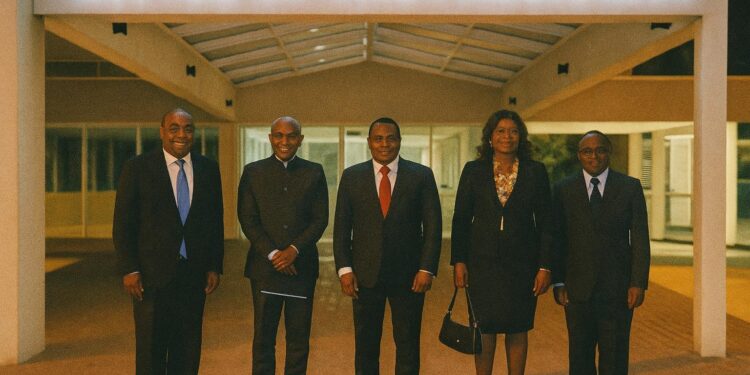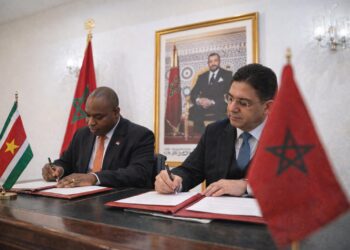Regional Diplomacy in Motion
For five intense days the Congolese foreign minister Jean-Claude Gakosso threaded a delicate needle across Southern Africa, delivering sealed missives from President Denis Sassou Nguesso and gathering endorsements for Firmin Édouard Matoko’s candidacy to succeed Audrey Azoulay at UNESCO. Starting in Luanda on 21 July and culminating in Port-Louis on 25 July, the tour underscored Brazzaville’s conviction that African cohesion, rather than fragmented national lobbying, will prove decisive in the 2025 vote in Paris (Congolese MFA communiqué, 2024).
Although the Republic of Congo commands neither the demographic heft of Nigeria nor South Africa’s economic clout, its long diplomatic memory—visible in its mediation roles from Central African Republic to the Great Lakes—allows it to activate a network of personal and institutional loyalties. The current campaign therefore intertwines personal diplomacy and a broader narrative of Africa’s quest for greater normative influence in multilateral bodies.
Matoko’s Profile and Continental Stakes
Matoko is no unknown quantity in UNESCO corridors. A former Assistant Director-General responsible for Priority Africa and External Relations, he supervised programmes ranging from heritage safeguarding in Timbuktu to technical training partnerships with ECOWAS (UNESCO press release, 2023). His platform—pivoting on multilingual education, digital heritage and south-south academic exchange—resonates with the African Union’s Agenda 2063 and has already attracted favourable murmurs from Addis Ababa.
For many African capitals, the bid is more than a personal promotion. Since Amadou-Mahtar M’Bow left office in 1987, no Sub-Saharan national has helmed the organisation. With Africa claiming roughly 30 per cent of UNESCO membership, Brazzaville argues that geographical rotation is overdue. The argument gains extra weight as debates on restitution of cultural artefacts, climate-driven displacement of heritage sites and equitable access to artificial-intelligence research dominate the institution’s agenda.
Mauritian Conversations and Symbolic Nuance
Port-Louis offered the tour’s most nuanced stage. Mauritius, a Commonwealth republic with deep Francophone sensibilities, straddles linguistic and geopolitical spheres. President Prithvirajsing Roopun received Minister Gakosso in the State House’s teak-panelled salon, observing that ‘plural identities can be a laboratory for UNESCO’s next decade’. Although the Mauritian cabinet has not yet issued a formal endorsement, diplomatic sources in Ebene describe the exchanges as ‘constructive and forward-leaning’.
The island state, often cited as Africa’s best performer on the Human Development Index, holds moral influence disproportionate to its size. A Mauritian nod would likely sway several Indian Ocean Commission members that remain officially undecided. Equally significant is Port-Louis’s expertise in marine-spatial planning and blue-economy stewardship—areas UNESCO plans to elevate. The Congolese envoy’s reference to joint capacity-building along the Gulf of Guinea, where illegal trawling erodes livelihoods, signalled potential programmatic synergies rather than mere vote-hunting.
Brazzaville’s Coordinated Messaging
Behind the choreography lies a carefully tiered governance structure. Sassou Nguesso’s decision to place Prime Minister Anatole Collinet Makosso at the helm of the second campaign wave ensures that domestic portfolios—from education to digital economy—speak with one voice abroad. Observers in the Economic Community of Central African States note that such internal coherence contrasts with past African candidacies that collapsed under competing regional blocs.
The messaging emphasises three pillars: first, Matoko’s technocratic experience over ideological posturing; second, Africa’s demographic argument framed not as entitlement but as a reservoir of cultural vitality; and third, Congo’s willingness to act as a facilitator rather than a gatekeeper, reassuring francophone and anglophone camps alike.
Next Frontiers of the Campaign
With the Southern African leg concluded, the convoy’s compass now tilts north-west. Abuja, Abidjan and Libreville feature prominently on the itinerary unveiled for late July and early August. Each capital offers distinct challenges: Nigeria’s comparative candidate calculus, Côte d’Ivoire’s post-electoral realignments and Gabon’s transitional politics after the 2023 coup. Yet Congolese officials privately express confidence that early groundwork through regional organisations has insulated the bid from sudden diplomatic mood swings.
UNESCO’s executive board will not vote before the autumn of 2025, but in multilateral politics perceptions congeal early. By manoeuvring at this stage, Brazzaville hopes to transform tentative goodwill into formal pledges before European and Asian contenders intensify their lobbying after the summer recess. International think-tanks such as the Global Governance Institute caution that overexposure can breed fatigue; Congo’s challenge will thus be to calibrate visibility and restraint.
Strategic Implications for African Multilateralism
Beyond the immediate race lies a subtler calculus: validating an African norm-entrepreneurship model that moves from reactive solidarity to proactive agenda-setting. If successful, the campaign could serve as a template for future continental bids at agencies such as the World Intellectual Property Organization or the International Telecommunication Union.
For Brazzaville, the dividends would include elevated soft power, renewed investor attention to its cultural corridors along the Congo River and an expanded network of technical partnerships. In a region where hard-security narratives often overshadow developmental diplomacy, the UNESCO contest offers a rare stage on which Congo-Brazzaville projects an image of constructive, knowledge-based leadership.










































